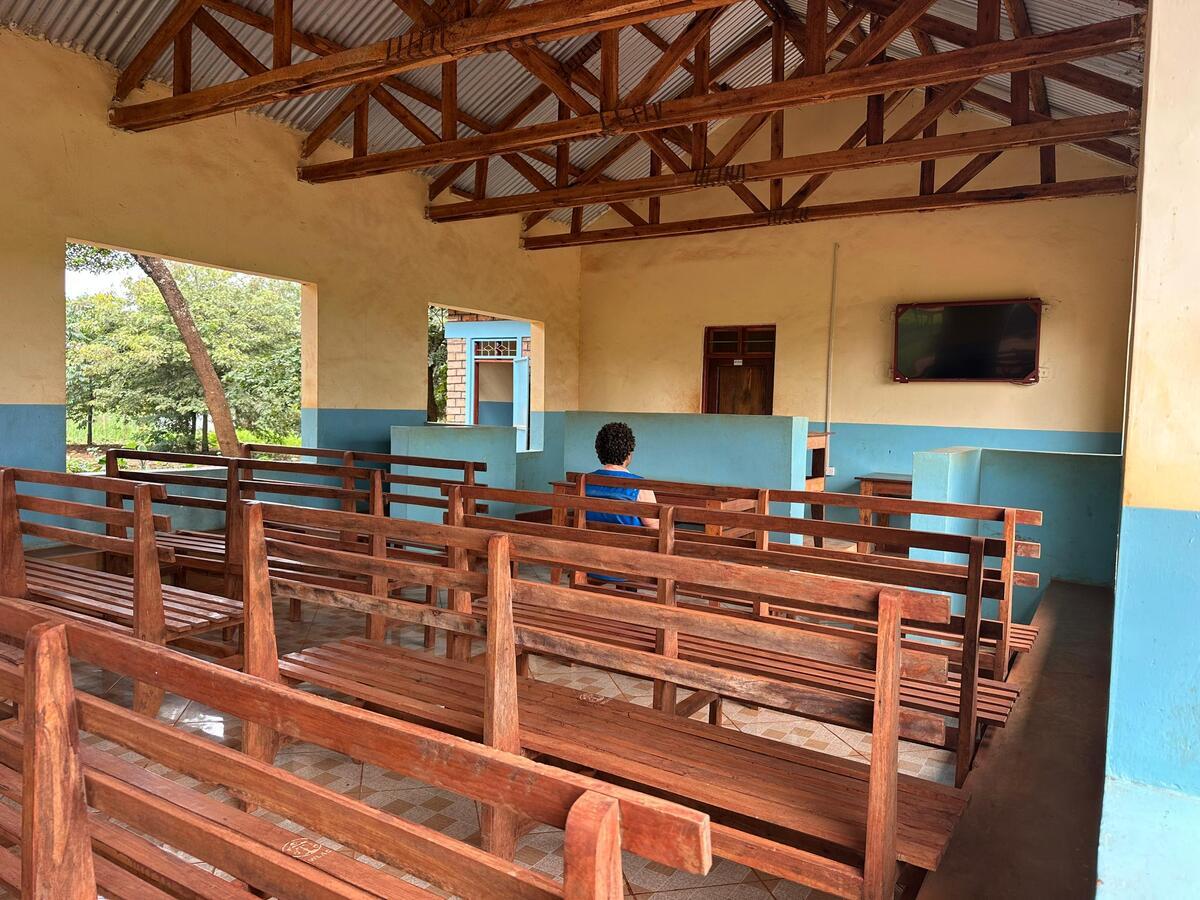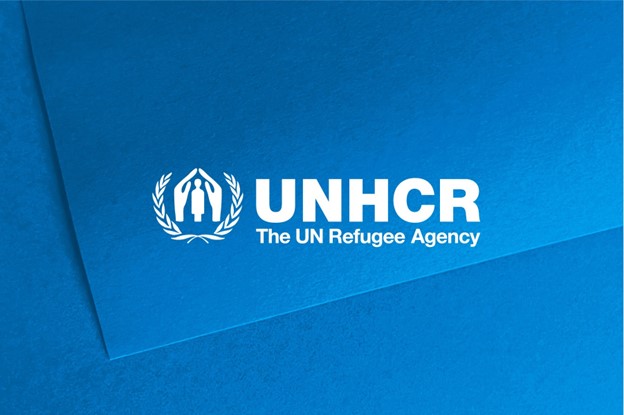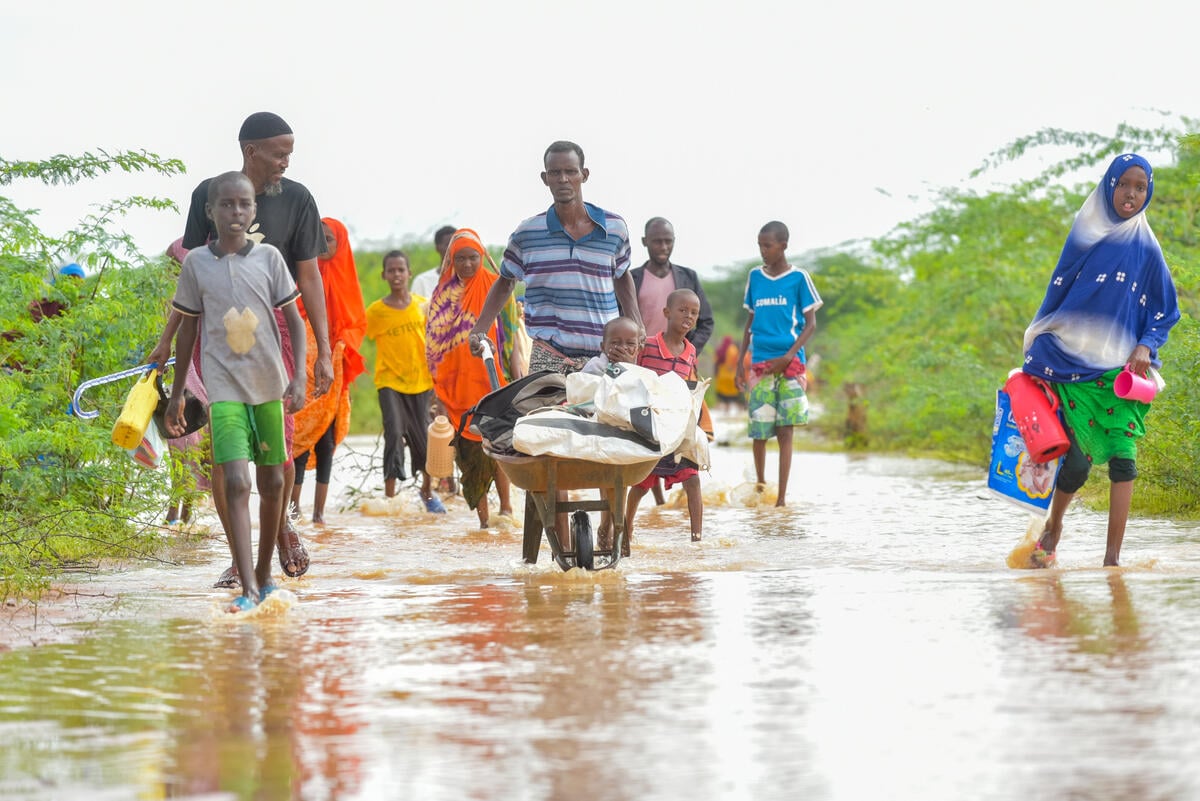Teaching under trees to give refugees an education despite all odds
Teaching under trees to give refugees an education despite all odds

NDUTA, Tanzania - Up at 4 am like clockwork, Nathan makes his way quietly around the semi-darkness of the mud-brick shelter that he shares with his younger brother, who is fast asleep. He gets ready quickly, steps out into the cold morning and starts walking briskly down a well-beaten path towards Majaliwa secondary school where he is a teacher.
The daily five-kilometer walk to and from the school in Nduta camp in northwestern Tanzania’s Kibondo district is a small price to pay for the 30-year-old Burundian. “I do not mind it very much,” he says. “Teaching my students gives me a sense of purpose to wake up every morning.”
A similar sense of purpose drove Nathan to seek refuge across the border with Tanzania when he felt threatened by the escalating political tension in Burundi. With just a few semesters left before graduating from university, Nathan left his home in the central west coast area in 2015 and traveled for two days to the border.
“I had to leave my parents behind as they are elderly. I am really worried about them,” he says. His father, 65 and his mother, 50 now live on their own without any of their children around to care for them after Nathan’s brother joined him in Tanzania. “I am grateful that with the little cash I have earned from teaching, I can call home once every two weeks. But it is not enough as these calls are really expensive.”
“Teaching my students gives me a sense of purpose to wake up every morning.”

Like many of his friends, Nathan had to drop out of university abruptly. “I was majoring in English studies. I love reading English literature like Shakespeare.” He has now channeled his love for reading to teach refugee children, albeit under extremely tough conditions.
Over 70 per cent of refugee students in Tanzania’s three camps – Nduta, Nyarugusu and Mtendeli, have to study outdoors as there are only 193 permanent classrooms available for about 9,650 students. With the instability in Burundi now in its second year, most Burundian refugees lack safe spaces or classrooms where they can learn comfortably. The overwhelmingly high teacher to student ratio in most schools where one teacher can have up to 400 students in a classroom further complicates the challenging situation.
The impact of the lack of safe space to study is worsened during the rainy season when the average attendance rate drops significantly by about 70 per cent.
Limited funding received in 2016 meant that UNHCR, the UN Refugee Agency and its partners were only able to construct 137 classrooms between 2016 and April this year. “Many students have been studying for two years in open spaces under trees,” says James Onyango, UNHCR’s Education Officer in Nduta. “About 100,000 students in pre-school, primary and secondary level are currently suffering a great deal as a result.”
“Things are really bad as children have to study under the trees.”
About 625 additional class rooms need to be constructed across all three camps to accommodate all students but funding is a major challenge. UNHCR’s appeal for USD 217 million to assist Burundian refugees in Tanzania is grossly underfunded, with only seven per cent funding received.
Some refugees in the camp with academic qualifications like Nathan were recruited as incentive workers to teach at the schools. But the situation makes it difficult for most of them to give their students proper lessons. Nathan knows only too well how challenging this is. “Things are really bad as children have to study under the trees,” he says. “As teachers, we are unable to get the books to teach the students. We are all using outdated teaching materials here.”
“I love these children. They are the future generation of Burundi,”
He however hasn’t given up. “I love these children. They are the future generation of Burundi,” he says. “One day when the time is right, they as future leaders will bring about positive change to our country. But to build our country back, they need access to education.”
Regarding his dreams for the future, Nathan hopes to return home someday. “I hope one day I can return home to a stable and peaceful Burundi and finish my education.” For now, he is happy to teach Burundi’s future leaders, even if it means to do so under trees.
Edited by Catherine Wachiaya in Nairobi, Kenya









